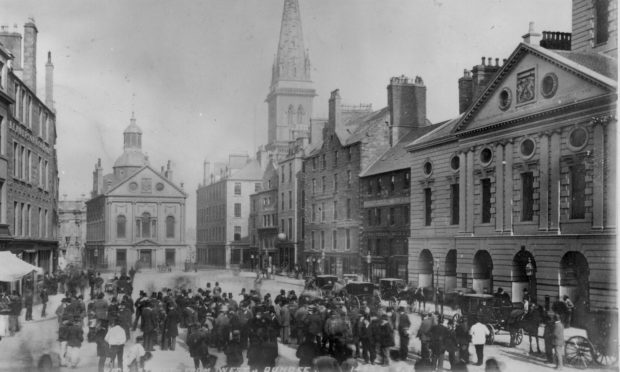Calcraft was one deflated hangman when he scowled his way out of Dundee in April 1873.
He had psyched himself up to drop killer Thomas ‘Bonnie’ Scobbie to his death, only to be thwarted by a last-minute reprieve from the home secretary.
This hangus interruptus left him with a gnawing frustration. Here he was with his bag of rope tricks and ready to perform, only to be told the gig was cancelled.
Hangmen don’t get to be centre stage every day. Executions, even in Victorian times were rare and the theatre surrounding them excited the public. So, for the curtain to fall before the performance had even started must have left him perplexed.
There was another problem weighing on his mind. For decades he had been master of the short drop, hanging by strangulation. But there was a new nooseman on the block, Marwood, who had tendered for the Dundee job. He was a practitioner of the long drop, the favoured method to this day.
Calcraft arrived in Dundee by train on April 27 and was greeted like a visiting statesman.
There was great interest in the large carpet bag he carried containing his rope and tools of the trade.
He was given quarters in Dundee prison ahead of the Monday execution. But news of the reprieve was soon delivered. The jury had argued they were not given the option of delivering a culpable homicide option.
Public opinion swung behind Scobbie and thousands signed a petition calling for mercy which had been posted at the Pillars and other sites.
At 6pm on the Saturday night, the gates of the prison opened and the Dundee public got a second glimpse at Calcraft.
He was whisked off in a cab and delivered to the railway station at break-neck speed.
A huge crowd had gathered there but the hangman betrayed no emotion.
His only concession to celebrity was to lower the window of the second-class carriage and hail the public as the train pulled out.
I wrote about Scobbie, the condemned man in a previous column. He was said to be a creature of horror. Those who gazed at him were left speechless by his repulsive appearance.
This ogre-like being went on a thieving spree near Kingennie in September 1872.
It seems he encountered gamekeeper George Spalding, 42, whose broken body was found next day under a hedge near Eathiebeaton farmhouse.
For this crime he was condemned to death. It is more likely, however, according to contemporary reports, that clemency was granted because of a bureaucratic bungle. He was ordered to hang on Tuesday April 29 but there would be no Tuesday April 29 for six years.
Instead, he spent 22 years in jail and was freed on licence in September 1895.
A native of Dunfermline, he went on to live at Lower Oakfield, Kelty, and died in January 1898.










